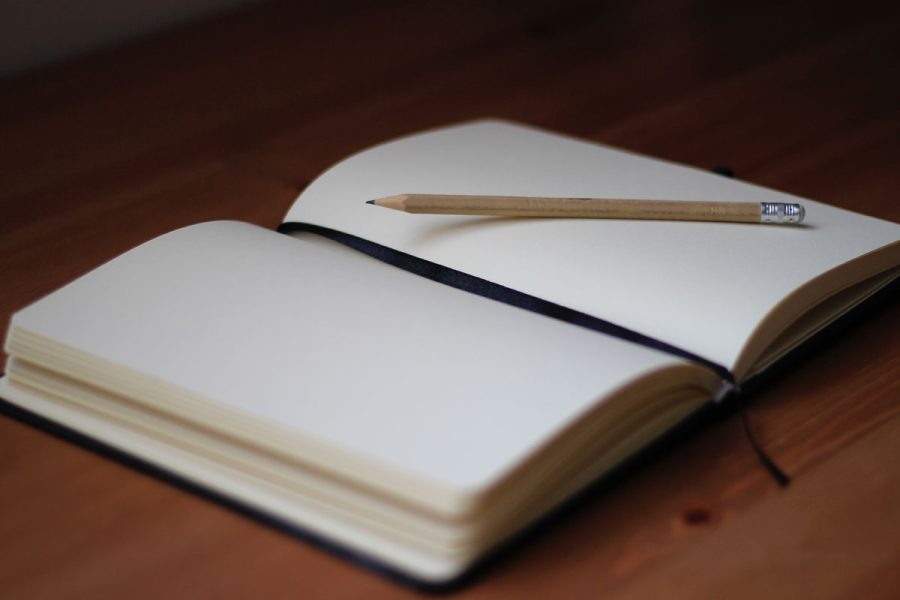Why You Should Try Journaling
What Is Journaling?
The dictionary defines journaling as “the keeping of a record of experiences, ideas, or reflections kept regularly for private use” Because this description isn’t very specific, journaling can be a wide variety of things. A journal can follow prompts, or just be a place where thoughts are written down. It can be written in daily, weekly, or just whenever needed. In most cases, journaling serves one of two purposes: recording events for future reference, or acting as a way to process thoughts and emotions. In the moment, a journal can help to cope with trauma and to prioritize fears and concerns. In the future, a journal can help to reflect and remember a certain time. This can help to deal with anxiety, depression, and stress. Over time, a journal can reveal patterns that are repeated throughout daily life. While looking over your journal, you may notice that there are many happy, relaxed entries about days spent doing nothing, followed by a panicked entry about a day full of work. This could help you to realize that procrastination is the cause of much of your stress. You could then organize your time better to reduce the amount of stress you experience.
How Journaling Helps to Manage Stress
Writing thoughts down can help to process events and label emotions, similar to the way traditional talk therapy would. Getting something out of your head and on to paper often helps release any stress tied to those thoughts, similar to the relaxation that follows confession. Low self esteem and unprocessed emotions are some of the most common stressors people can face, and they are both improved by journaling. Without so much energy being spent dealing with these stressors and others, sleep improves, and in turn so does the immune system and cognitive ability. Journaling also can release the stress of confusion. While writing everything down, it’s easier to zoom out, look at the big picture, and find understanding. Journaling has many health benefits, from improving mindfulness, memory, and communication skills, to improving sleep, raising self esteem and IQ, and even strengthening the immune system. Managing stress is just one of many things journaling can be used for. Journaling helps keep things organized in our minds, which reduces any stress that comes from chaotic thoughts.
The History Of Journaling
Journaling has been around for almost as long as writing itself. The first journals were mostly records of the comings and goings of daily life. Journaling wasn’t recognized for its therapeutic potential until the 1960s when Dr. Ira Progoff lead a seminar on his Intensive Journaling Method, which he used to document his patient’s healing process. The popularity of writing all aspects of one’s life down increased with the rise of self help and emotional wellness. By the 1980’s, journaling was used in schools to improve independent thinking skills. Students described feeling a release of pressure after writing down their journal entries.
When Should You Journal
Most experts recommend journaling either when you first wake up, or just before you go to bed. You can either begin your day by recording your thoughts and hopes for the day, or use journaling time to wind down and reflect on your day before you go to sleep. Both are very beneficial, but I have found writing before bed works better for me, because it allows me to get everything that’s on my mind out, and start fresh the next morning.
What Does Journaling Look Like?
Journaling can look like many different things depending on the person and their goals. Someone could sit at a desk, and write about their experiences to create an account of their experiences for their future self or future generations. Journaling could also look like someone in bed, writing by flashlight just to express their emotions.
Where to Start
When journaling, perhaps the most helpful technique is to start by writing about your day and then just follow wherever your thoughts take you. I usually start by writing three things I am grateful for to get something on the page. Even with just one line filled, the the idea of filling a whole page seems much less intimidating. So, give it a try. Take a few minutes, and write down your thoughts and emotions. If you get stuck, think about what you’ve done in the past 24 hours and write about that. If that doesn’t work, pick something you’re passionate about and write everything you have to say about it. Sometimes just putting the pen to the page or your fingers to the keyboard is all it takes to start. Take the first thing that comes to mind, and write about it. You’ll surprise yourself with how much you can write.
My Experience With Journaling
I began journaling sometime during March of 2020. I found a notebook on sale, and decided it was time to start a journal and actually stick to writing in it everyday. So far, I’ve done just that, and I am up to 684 entries. I started just before word of the pandemic began to spread. At first I wrote as if my journal would be a document for future historians to read and learn about life in 2020. Rereading my first entry, the biggest news I had to share was the start of the plastic bag ban. Less than a week later, I was writing about school closures and quarantines. Throughout the pandemic, it has been helpful to have somewhere to write down my thoughts. There is something calming about looking at the words on the page after I finish writing, and knowing that they’re not just in my head anymore. I’ve found that I sleep better, without so many thoughts bouncing around in my head. I’ve found the best way to think about my journal is like Dumbledore’s pensieve in Harry Potter. It’s somewhere to put all of my thoughts for safe keeping so I can focus on them one at a time. Journaling helps me to clear my mind before I go to bed. It feels great to let go of everything from that day and start with a fresh mind in the morning. I also often find that writing down a problem makes a solution more clear. There are many entries in my journal that start with complaints about a problem and end with a clear plan of action.
Works Cited
“A Brief History of Journal Writing.” The Center for Journal Therapy, journaltherapy.com/get-training/short-program-journal-to-the-self/journal-to-the-self/journal-writing-history/.
Elizabeth Scott, PhD. “Is Journaling an Effective Stress Management Tool?” Verywell Mind, Verywell Mind, 27 Mar. 2020, www.verywellmind.com/the-benefits-of-journaling-for-stress-management-3144611.
Gregor, et al. “17 Journaling Tips For Beginners (And How To Start).” Vanilla Papers, 9 Jan. 2022, vanillapapers.net/2019/11/13/journaling-tips/.
“Journaling for Mental Health.” Journaling for Mental Health – Health Encyclopedia – University of Rochester Medical Center, www.urmc.rochester.edu/encyclopedia/content.aspx?ContentID=4552&ContentTypeID=1.
Nazish, Noma. “Five Reasons To Keep A Journal In 2018.” Forbes, Forbes Magazine, 10 Jan. 2018, www.forbes.com/sites/nomanazish/2017/12/29/five-legit-reasons-to-keep-a-journal-in-2018/?sh=1a41c1e255e1.
Phelan, Hayley. “What’s All This About Journaling?” The New York Times, The New York Times, 25 Oct. 2018, www.nytimes.com/2018/10/25/style/journaling-benefits.html.

Sara is a senior who has been writing for EMC for six years. She is involved in many clubs, including Robotics, Impressions, Science Club, NHS, and EMC....

